¶ It’s now been almost two months since Tony Abbott’s Liberal government came to power over the Rudd-Gillard-Rudd-led Labor Party. The relative swing from left to right is one of the greatest in Australian history, and no doubt students of Australian politics will study this dramatic restaging of government for generations to come. The Australian people have tried socialism, tried relativism, tried republicanism, and found it severely lacking. Many of our conservative fellows have yet to recover from their champagne hangovers incurred on the evening of the 7th September. We’re still celebrating, sedated with optimism and victory.
¶ But supporters of the Sydney Traditionalist Forum must understand something: Mr Abbott is a conservative, yes. But he’s not necessarily a Traditionalist.
¶ The Honourable Prime Minister, I have no doubt, is a good man who endeavours to live by his principles, which are in many respects Catholic and traditional. But he’s a politician, and a politician with (apparently) broad mainstream support. The fact of the matter is that our demands are not ‘mainstream’. Most of us are not free market capitalists. We’re not libertarian-conservative Fusionists in the American style. We don’t style ourselves as fair dinkum Aussie blokes. We’re traditionalist conservatives, many of us are Agrarianists and Distributists, we believe in Christian government and defend our British heritage. And indisputably, we’re Monarchists.
¶ Having recently finished Mr Abbott’s The Minimal Monarchy I was stricken both by how good-natured Mr Abbott’s approach is, and how disappointing the content was. Take, for example, this section from Chapter 7, ‘A hereditary cookbook’:
As late as the last century, Bagehot declared that there were two dimensions to English Government: the Crown, with its panoply of tradition and circumstance was ‘dignified’. Parliament, courts and cabinets were ‘efficient’. The Crown was for show, the Cabinet was for substance. The Cabinet was for ‘bread’, the Crown was for ‘circuses’. The sovereignty of Parliament was re-enforced by the 1909-1911 constitutional crisis in which King George V agreed to appoint as many peers as were necessary to ensure that the Government’s money bills passed through the House of Lords and that the Lords could not block Parliamentary reform.
[…]
A ceremonial role is important, as Bagehot recognised. Pageantry can add magic to any polity… In becoming a figurehead, the Monarch became the very opposite of a dynamic ruler subjects once expected. But in foregoing power, the Monarch gained respect. The Crown became the embodiment of the nation, rather than its chief executive.
¶ Abbott also says of the English Civil War and the Glorious Revolution: ‘… in the end, the Crown understood that sovereignty depended upon the consent of the people while the people, insofar as it is possible to determine these things, had concluded that the monarch lent stability and restraint to the process of governing.’
¶ I don’t pretend to read into Mr Abbott’s heart; he has proven himself to be loyal to the Queen and to the traditions of Australia, that much is indisputable. Nor do I intend to put words into his mouth, but Abbott, by his admission in chapter 3, is believes Australia is and should remain a ‘crowned republic’:
we are already a republic in every sense without worrying about it. Our constitution derives from the people. Our Government is democratically elected. Our Prime Minister must answer to Parliament. Our leaders are subject to law. Our polity is not open to arbitrary change. We are a ‘crowned republic’ because we save the hereditary principle for the one job which even republicans admit should be above and beyond politics.
¶ I don’t doubt that some monarchists would be a bit upset about this take on the role of the Crown. If we read the text of ‘God Save the Queen’, the Australian Royal Anthem, do we sense our Monarch is meant to be the idle crown on the head of a republic?
God save our gracious Queen,
Live long our noble Queen,
God save the Queen!
Send her victorious,
Happy and glorious,
Long to reign over us,
God save the Queen.
¶ The Anthem proclaims that the Queen reigns, but by Mr Abbott’s admission, in a crowned republic sovereignty resides with Parliament. This may seem like a small difference, but when we consider the non-legal functions of the Crown (which Mr Abbott unfortunately refers to as the ‘circus’), sovereignty becomes an utmost concern.
¶ (Herein I will stop picking on the Prime Minister and only now thank him for his long commitment to defending the Monarchy and Constitution of Australia. There is no doubt that a republican referendum is a non-issue so long as Mr Abbott is in office.)
‘The embodiment of the nation’
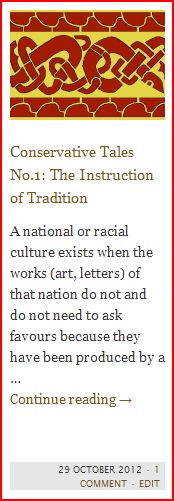 ¶ Mr Abbott raises a very essential point in defence of monarchy: that the Crown is the embodiment of the nation. The choice of words is interesting: is the person of the Queen—her literal body—the body of the nation? I would say, yes. Without a doubt.
¶ Mr Abbott raises a very essential point in defence of monarchy: that the Crown is the embodiment of the nation. The choice of words is interesting: is the person of the Queen—her literal body—the body of the nation? I would say, yes. Without a doubt.
¶ Crowned republicans may well recognise this central role the monarch plays. But to what end? They correctly acknowledge that republicans such as Mr Paul Keating tend to formulate ceremonial republican offices and customs to fill the void of the Crown in their proposed republic. There is usually an incredible void left in republics when they do away with their monarch—it may well be as simple as the Founderism in the United States, where a nation founded on individual rights and self-determination is obsessed with the vision of a small group of oligarchs who died centuries previous. The gap may be more cataclysmic, such as the failed Bolshevik attempt to transition from Absolute Monarchy to Marxist utopia. But that void is there: the nation seldom becomes defined simply as ‘the people’. Usually the nation becomes fixated with certain principles attached to important personalities or a complete cult of personality.
¶ I’m at a bit of a loss as to what concern crowned republicans would have with this transition, except that ‘if it isn’t broken, why fix it?’ If power and legitimacy are invested exclusively in popular and democratic means, a ceremonial President as Head of State—who does literally what the title implies, preside—oughtn’t trouble a crowned republican. If the people want it, and if it serves the country’s needs, why not give it to them? The crowned republican position seems to be a long and exaggerated exercise in stalling. But we know that the people of Australia do not want a republic of any sort: about 55% of Australians voted to retain the Crown.
An elder for the nation
¶ What isn’t discussed is that Aboriginals—rural Aboriginals, not the self-styled ‘leaders’ of the Aboriginal community who live in cities and make a living of racial agitation—decisively voted against the republic. The inevitable ‘why?’ is a good one. Perhaps we’d like to think that Aboriginals are accepting of the cohabitation of white and native peoples, and therefore would support the ‘white’ traditions in hopes that whites would support ‘their’ traditions. The traditions of the parts form the Tradition of the whole. This is tenable.
¶ What might be more likely, however, is observing how true Aboriginal communities themselves operate. Despite the majority presence of whites in Australia, most of whom are indulging in the great decline of Western civilization, the Aboriginal peoples have retained a sense of spiritual rootedness. They feel, as we once did, that legitimate authority is not contractual, that we can’t think of electing governments in the same way we hire a tax accountant. Aboriginal communities, if not legally, de facto continue to give Elders a place of great and reverent authority. They serve a certain monarchical function on an individual level. We might conclude that Aboriginal communities see the Queen as a ‘white elder’ of sorts, who—like their own—is invested with spiritual rather than contractual authority, is informed by higher values than material interest, and who answers to sacred and ancient rather than secular and popular Powers.
¶ There is also the speculation that, in 1875, Queen Victoria and the House of Lords declared the Aboriginal people sovereign in Australia;1 perhaps this declaration doesn’t carry to the point that all whites must submit to Aboriginal sovereignty, but the Monarchy has always recognised the unique and rightful place of the Aboriginals in Australian society. This expectation that the Monarchy to do what is right for the people of Australia continues today: Aboriginal rights activist Michael Anderson recently said, ‘We now call upon Queen Elizabeth II to show true leadership in her capacity as “Queen of Australia” to bring an end to the colonial governance of Aboriginal Peoples.’2 While we might not agree that colonial rule is still in place, it’s entirely worth noting that Aboriginal leaders so respect and trust Her Majesty to safeguard and advance their rights as Australians.
¶ If we do indeed desire to reconcile the different segments of Australian society, namely the Aboriginal and Settler populations, the Aboriginal peoples will not be seduced by the smoke and mirrors of republicanism. What they demand, as we once did, is a higher authority. They don’t care if the Queen looks like them, and we can’t truly believe that they hate us white Australians for the colour of our skin. They mistrust our politicians, our political parties, because the spiritual element of all human beings is disgusted by favour-peddling venal democracies. The Queen is an elder for all Australians, black or white or whatever we might be. Whether or not we have the right, we have no good reason to shrug off the immense and sacred position of the Queen of Australia.
Moving forward as a Monarchy
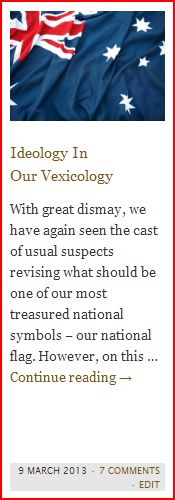 ¶ So where do we go from here? Do we throw away the Australian flag and fly the National Colonial Flag? Do we dissolve Parliament and invest the government in the Governor-General? No, of course not. Australia is an independent nation with an independent history, and one every Australian has the right to be proud of. There are elements of Australian society that are British, yes: the laws of Australia are rooted in British Common Law that can be traced back to King Alfred of Wessex. The Australian Navy was built on the example of the greatest seafaring power the world has ever known. We even speak the English language! But Australia is also unique in profound ways. No country has defined itself by the looming Frontier like Australia, not even the North and South American peoples. No ‘Western’ country is situated so far from Europe and has been so independent in its rearing. That Australia was founded as a penal colony isn’t something to be embarrassed of; rather, it shows that the Australian character—like the human character—was made great by overcoming flaws, by finding ourselves alone and helpless and coming together as one people out of the bare, God-blessed need for cooperation. But these parts can exist in harmony.
¶ So where do we go from here? Do we throw away the Australian flag and fly the National Colonial Flag? Do we dissolve Parliament and invest the government in the Governor-General? No, of course not. Australia is an independent nation with an independent history, and one every Australian has the right to be proud of. There are elements of Australian society that are British, yes: the laws of Australia are rooted in British Common Law that can be traced back to King Alfred of Wessex. The Australian Navy was built on the example of the greatest seafaring power the world has ever known. We even speak the English language! But Australia is also unique in profound ways. No country has defined itself by the looming Frontier like Australia, not even the North and South American peoples. No ‘Western’ country is situated so far from Europe and has been so independent in its rearing. That Australia was founded as a penal colony isn’t something to be embarrassed of; rather, it shows that the Australian character—like the human character—was made great by overcoming flaws, by finding ourselves alone and helpless and coming together as one people out of the bare, God-blessed need for cooperation. But these parts can exist in harmony.
¶ In 1855 responsible government was granted to the colony of New South Wales, whereby governors of the colony were allowed exercise much more personal power. The governors, British-born as they were, recognised the superiority of the Westminster System and regarded it as the true system of government for men and women of British heritage. Thus Australian democracy was born: with the stamp of approval from Queen Victoria, the consent of Parliament, and the initiative of the settler authorities. No blood was shed, no ill will sewn. And so the Queen, the Governor-General, and the Parliament all together represent the real, consensual, and historical fundament of Australian government. This was the will of our fathers, who saw Britain neither as a master nor a foe, but as a parent, a motherland.
¶ And so Queen Elizabeth, and her heir Prince Charles, and his heir Prince William, and his heir and Prince George, and so on ad infinitum—these aren’t simply members of a German family who live in luxury half-way around the world. These are the daughters and sons of Queen Victoria, whom all Australians recognised as their undisputed sovereign, and who undoubtedly considered Australians, of all kith and kin, her people. This is what the Royal Family even today holds in their hearts. Australia is in their bloods as much as England is—even as much as Australia is in ours. They are Monarchs, yes, but they are countrymen, arbiters of our independence and advocates for our wellbeing. The history of Australia is inseparable from the Monarchy; the character of Australia is inseparable from the Monarchy; and, if we love the country our fathers built, her future is inseparable from the Monarchy.
¶ We need only recognise—and celebrate—this popular and undoubtedly legitimate bond that has existed from generation to generation of Australians and their Kings and Queens, which is entrusted constitutionally both to the people of Australia and in the Governor-General, to uphold our timeless and abounding sovereignty. It is as a nation, from Sydney to Buckingham Palace, that we solemnly demand that politicians of all parties honour our history, our identity, and the rights our ancestors fought and died for. We are but one land, one people, and we have but one Queen by the Grace of God, Elizabeth II. Long may she reign.
When gallant Cook from Albion sailed,
To trace wide oceans o’er,
True British courage bore him on,
Till he landed on our shore.
Then here he raised Old England’s flag,
The standard of the brave;
‘With all her faults we love her still,’
‘Britannia rules the wave.’
In joyful strains then let us sing
Advance Australia fair.
– Cecil Lansdowne
Cecil Lansdowne is a student of politics and a conservative grass-roots campaigner in the Sydney region.
End Notes
- Anonymous, “Queen Victoria: Crown owns nothing, Aborigines are sovereign” Independent Media Centre Australia (18 October 2011) <indymedia.org.au> (accessed 11 November 2013).
- Ibid.
Further Reading
- The Hon. Tony Abbott, The Minimal Monarchy and Why it Still Works for Australia (Wakefield Press, 1995) particularly chapter VII “A Hereditary Cookbook.”
- Cf. also Sen. Cory Bernardi, The Conservative Revolution (Connor Court, 2013) particularly chapter IV “The Third Pillar: Our Flag”. This book is forthcoming in late November, early December this year; Pre-sale copies can be ordered on the Connor Court website – SydneyTrads Editors.
SydneyTrads is the internet portal and communication page of the Sydney Traditionalist Forum, an association of individuals who form part of the Australian paleoconservative, “traditionalist conservative” and “independent right”.


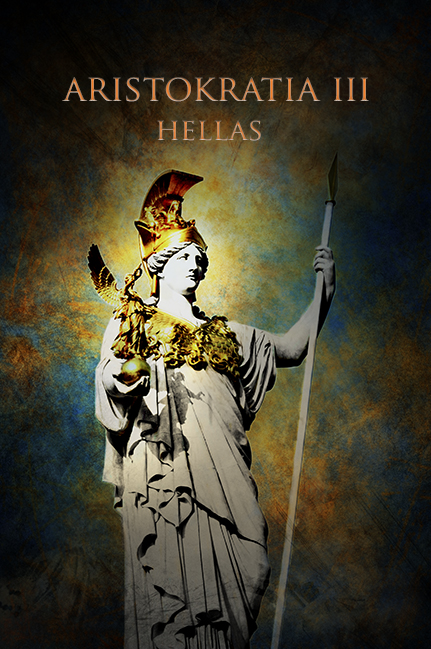
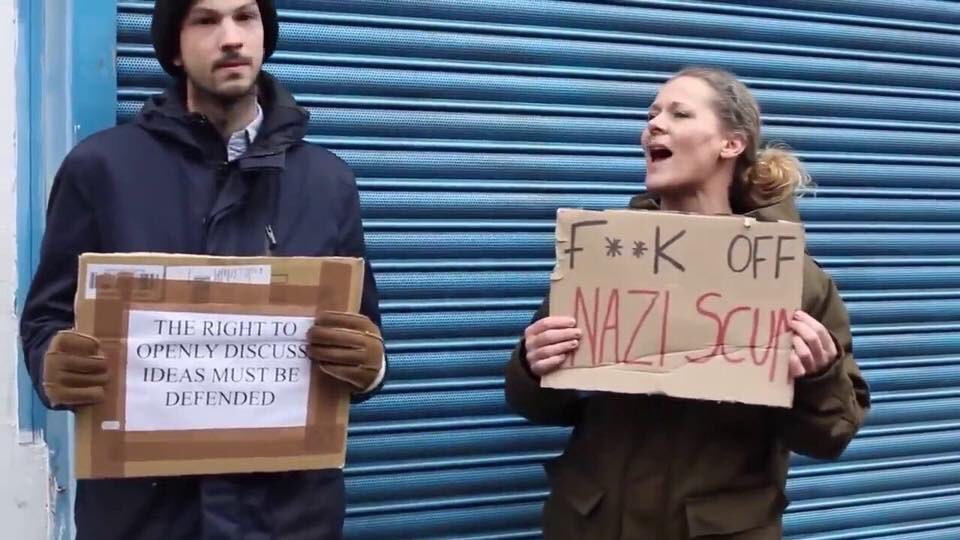
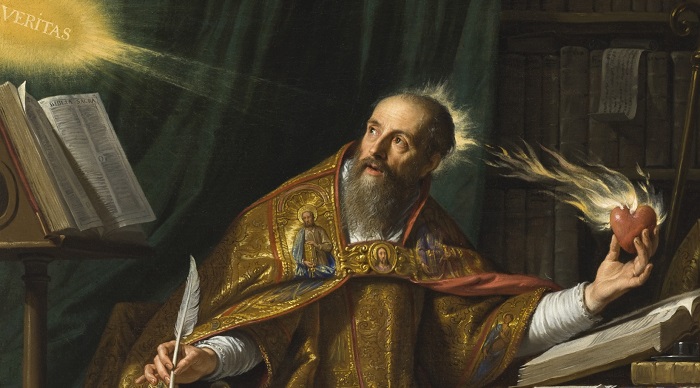
Be the first to comment on "The Maximal Monarchy: A Monarchist’s Case Against Crowned Republicanism"